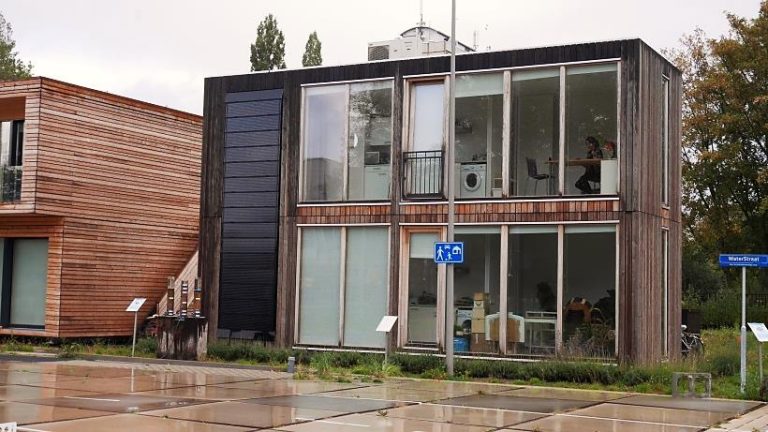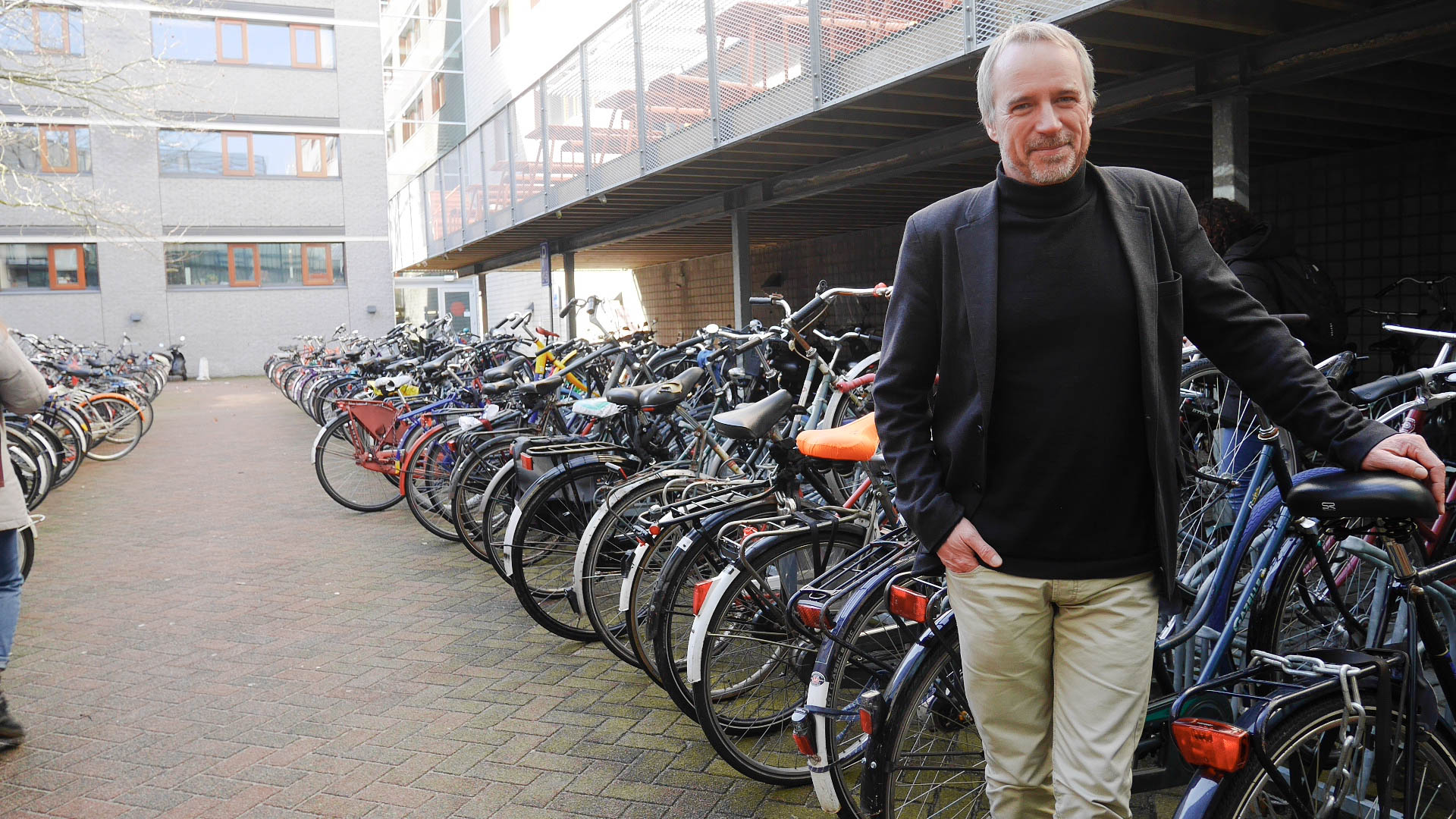Universities should do more for the climate, say scientists in an open letter. Co-initiator and TU Delft Professor Bartel Van de Walle explains why.
Professor of Policy Analysis Bartel van de Walle says “I am warmly inviting all colleagues to sign.” (Photo: Marjolein van der Veldt)
The scientists are calling on their universities to make their climate policies more stringent. Universities should invest more in sustainable energy and should think about environmentally friendly solutions for canteens and conference dinners. The initiators of the letter also plea for no more university investments in fossil fuel industry funds. And Dutch scientists themselves should fly less frequently.
The ‘climate letter’ was published online on Monday 4 February and since then has been signed by nearly 800 scientists. The 22 initiators believe that it should be universities who play the leading role in the battle against climate change. Bartel Van de Walle, Professor of Policy Analysis at TU Delft, is one of them.
‘We need to move now’
Why did you initiate this action?
“I was asked to be part of it. My department, multi-actor systems at TPM, does a lot of climate related research. For example, we generate thousands of climate scenarios and then assess them to see which are likely. We also ask ourselves how we can arm people and cities against disruptive disasters and how you stimulate people to join the energy transition instead of putting on yellow vests. I myself am looking at how we should respond to major humanitarian disasters. These are increasingly connected to climate change.”
“I also have more personal reasons to be involved. My daughter is protesting with Youth for Climate every week in Flanders. They say that we do not have much time anymore. We need to move on climate change – we are beyond business as usual. It’s shocking that we have let it get so far that young people are having to do this. We cannot ignore it anymore.”
Green office and solar panels
The climate letter addresses universities directly. What does TU Delft think? A spokesperson tells Delta that it is good that ‘staff are so involved in this subject and in the TU Delft’. She then summarises what TU Delft is already doing and has done:


Test home in the Green Village on TU Delft’s campus. (Photo: Mirjam van der Ploeg)
- The Green Office where students and staff brainstorm about sustainability on campus.
- Pulse, the energy neutral teaching building, was opened last year.
- Growing attention to sustainability in teaching and research.
- Solar panels on various roofs around campus.
- Buying of green wind energy.
- Plans for geothermal heating on campus.
The spokesperson also sees challenges. “We own many old buildings and have a limited budget, so making the campus more sustainable is a long term project.”
Top priority
The question to Van de Walle is what more should TU Delft do?
“A lot is indeed being done. See the Dies’ climate action theme. But it should be the top priority. Research could be coordinated much better. The societal urgency should lead TU Delft to come up with a clear action plan. A presentation of the Campus vision shows that TU Delft’s goal for reducing its own CO2 emissions meets the legal requirements. It should be far more ambitious.”
The letter calls on universities to stop investing in fossil industry funds. Should TU Delft also stop working with oil companies in your opinion?
“We have to engage fully with companies such as Shell to speed up the energy transition. A few years ago, you did not hear them about this subject. Now, you can see a change there.”
You also ask scientists to fly less. Are universities like TU Delft not better placed to push this? You know from experience how hard it is to stop flying.
“That’s right. I was a KLM gold card flyer for a long time. I was in Geneva only last week and, yes, I flew there. I will not do so next time. TU Delft could set a limit of 500 kilometres, under which you take the train instead of the plane. You could also ask if it really is necessary that you attend that meeting or conference in person or if you could Skype, for example. You see so little progress in terms of technology at conferences.”
How can that be?
“The need is smaller than you would expect. The main reason that people go to conferences is the social contact. You see colleagues in the flesh and make better connections with each other. That social aspect of one’s work is very important.”
The climate letter has now been signed by about 800 scientists and this number is rising. There are very few TU Delft scientists among them. Is this subject not deemed relevant here?
“Scientists here often say ‘I will solve the problem instead of signing a letter’. I understand that and that’s what makes TU Delft great. Still, it is important to send a signal. That’s why I warmly invite all our colleagues to sign.”
Saskia Bonger (Delta) / Steffi Weber (HOP)
Do you have a question or comment about this article?
s.m.bonger@tudelft.nl


Comments are closed.